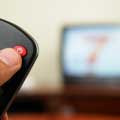
Breast Cancer Awareness Month has been one of the most successful campaigns in recent history to raise public awareness. More women than ever receive regular mammograms, and do breast self-checks, and the breast cancer survival rate is steadily increasing. But while a breast cancer patient’s physical health is usually well-tended to, her emotional health can suffer with the frightening, confusing diagnosis.
Read Related: By Sharing My Cancer, I Replaced Fear with Hope
Cancer psychotherapist Dr. Niki Barr, author of Emotional Wellness, The Other Half of Treating Cancer, emphasizes that “it’s equally important to remember that, should you or a loved one be diagnosed with breast cancer, you should care for your emotional well-being as much as you take measures to restore physical well-being.” In her book, she describes an “emotional wellness toolbox” patients can put together with effective and simple strategies, ready to use at any time, for helping them move forward through cancer. While doctors, nurses and medical staff tend to your body, you can tend to your mental health with some of these exercises Dr. Barr recommends to her patients:
“Catch” anxious feelings before they become anxiety. Prevent anxious thoughts from becoming full-blown anxiety by “catching” those feelings before they intensify. If you find anxious thoughts repeating themselves in your mind, take out some index cards and a pen and write them down, one by one, one per card. When you’ve written them all down, try to identify which one thought started the chain reaction. Then find the thought that came next. Continue until you have each thought in order. Now, go back to the first thought and write down a new thought that does not make you feel anxious. When the first thought comes to mind, substitute it with the second thought. Continue through the list until you have positive, empowering thoughts for each negative, anxious one.
Release painful feelings and then let them go. Writing down painful thoughts and feelings through journaling is an excellent way of exorcising them. Some people find rereading what they’ve written can be helpful, but others hesitate to use this tool for fear someone will find it and read their private thoughts. For those people, Barr suggests an extra measure of release: Shred the pages while focusing on “letting go” of those feelings.
Give your mind respite by escaping through music and meditation. Music is a tonic for many things: It can help us relax, lift our spirits, provide an escape from anxious thoughts and the here and now. Always have favorite CDs or iPod or other player easily accessible so you can escape with music whenever you need to. Meditation CDs are available to help you learn how to meditate and to provide guided imagery for meditation, which is scientifically proven to trigger soothing chemical changes in the brain. Try “Meditation for Beginners” by Jack Kornfield or “Guided Mindfulness Meditation” by Jon Kabat-Zin. Finally, sleep is an absolute must for both physical and emotional health. If you’re having trouble sleeping, there are CDs and downloads to help! Try “Sleep Through Insomnia” by KRS Edstrom.
Niki Barr, Ph.D. founded a pioneering psychotherapy practice dedicated to working with cancer patients in all stages of the disease, along with their family members, caregivers and friends. Dr. Barr is a dynamic and popular speaker, sharing her insights with cancer patients and clinicians across the nation.












